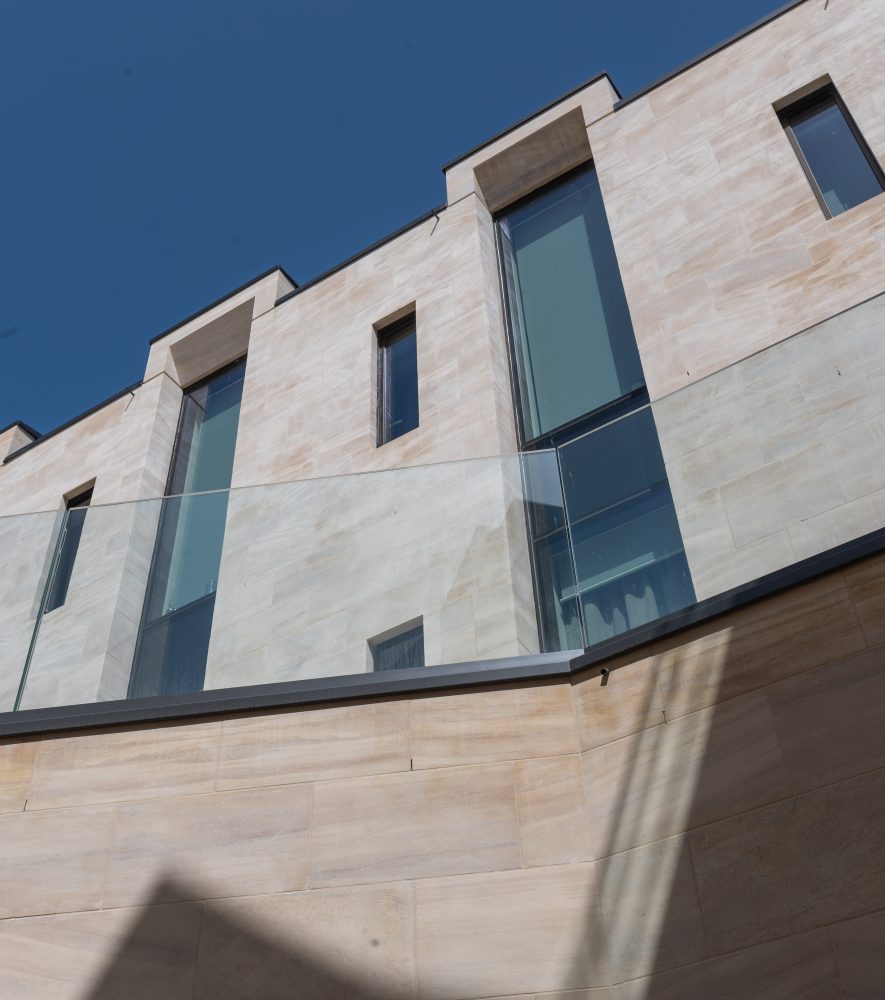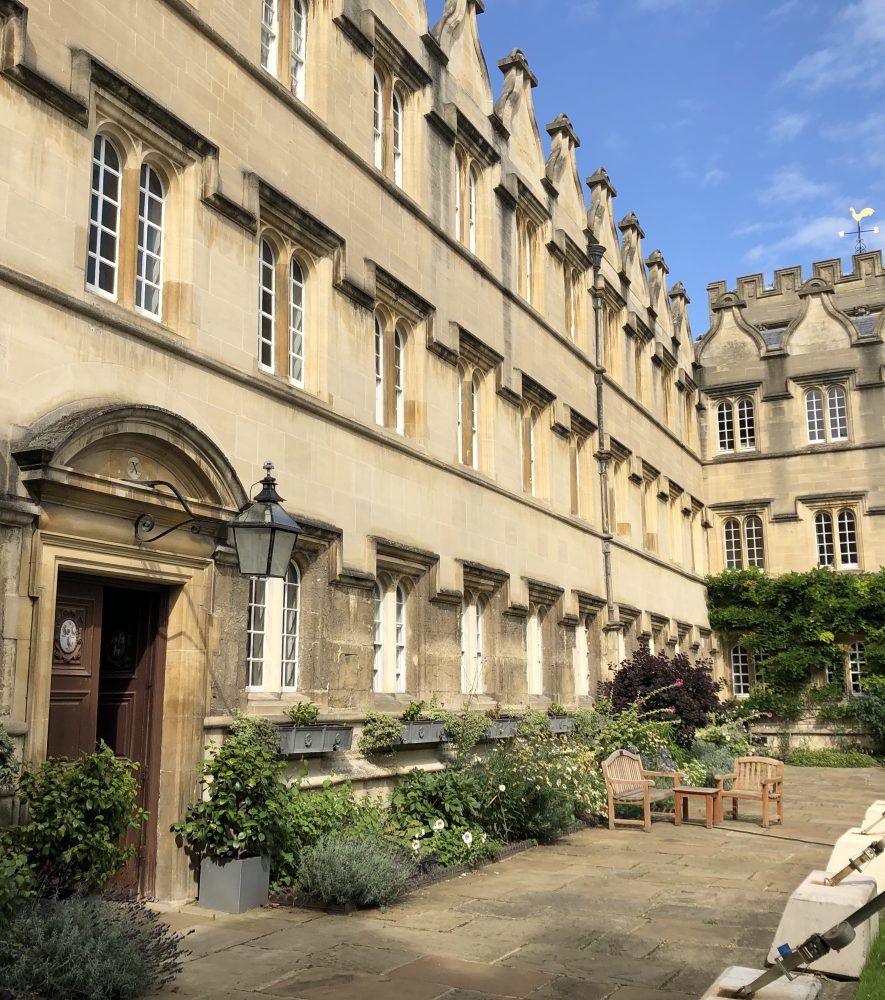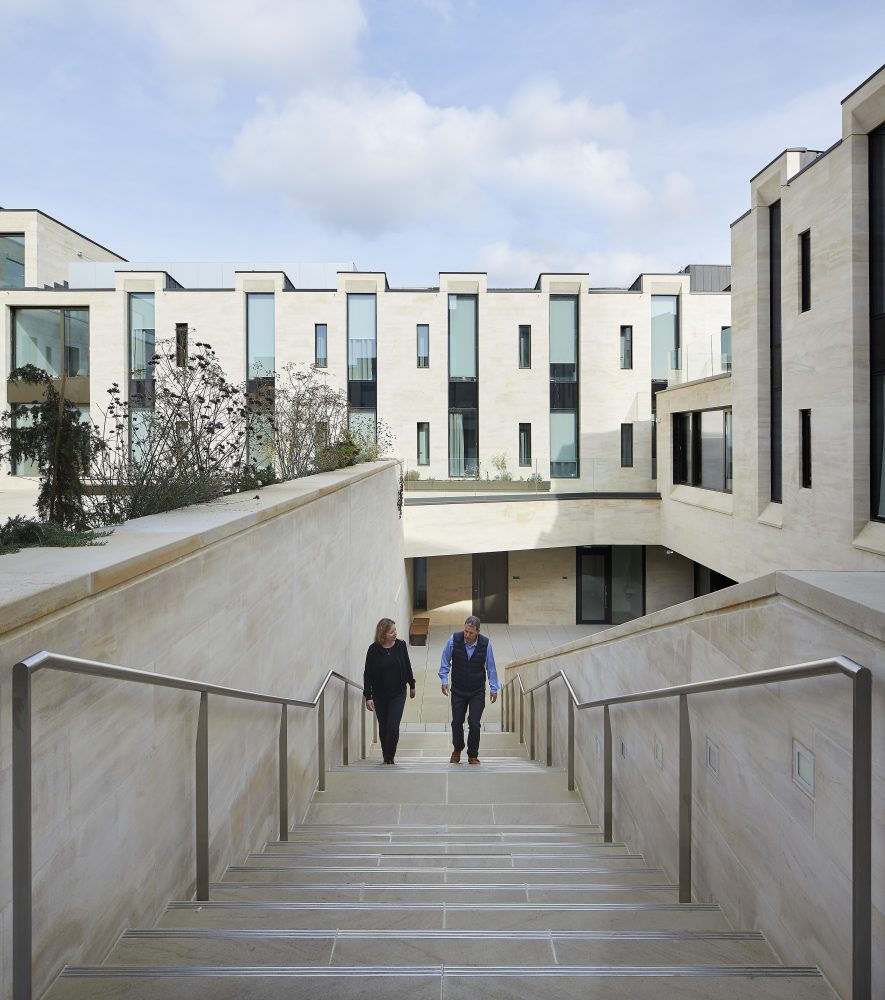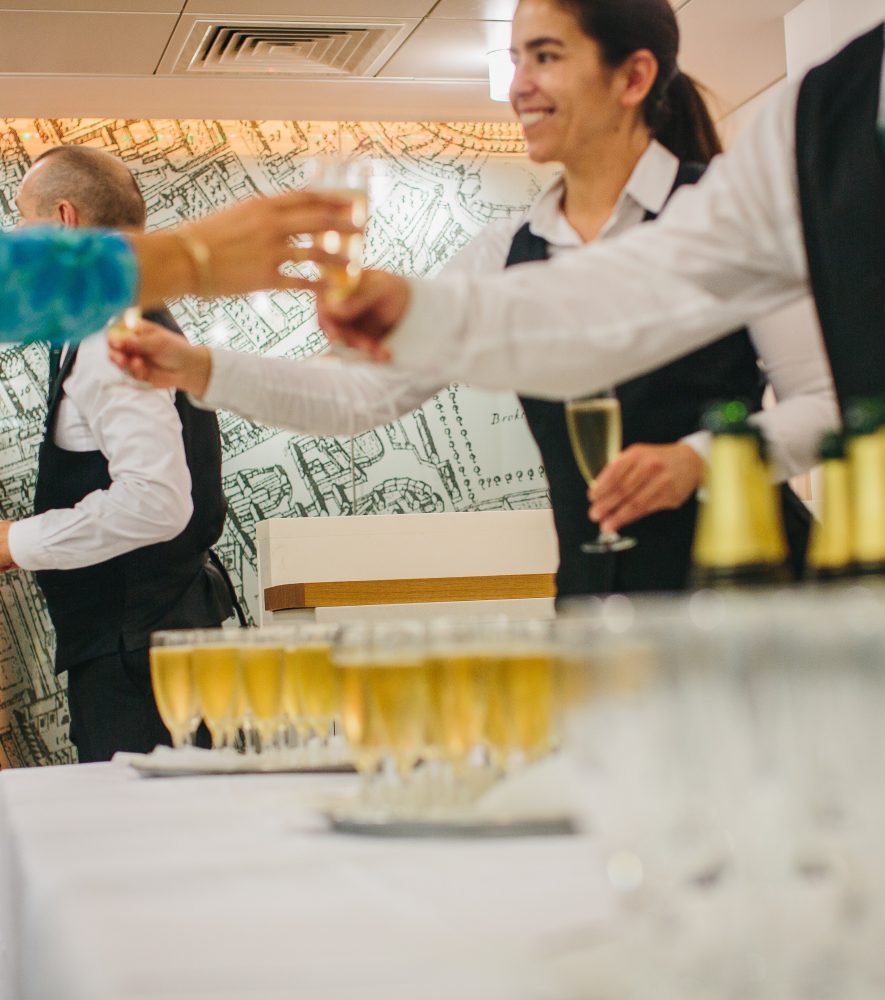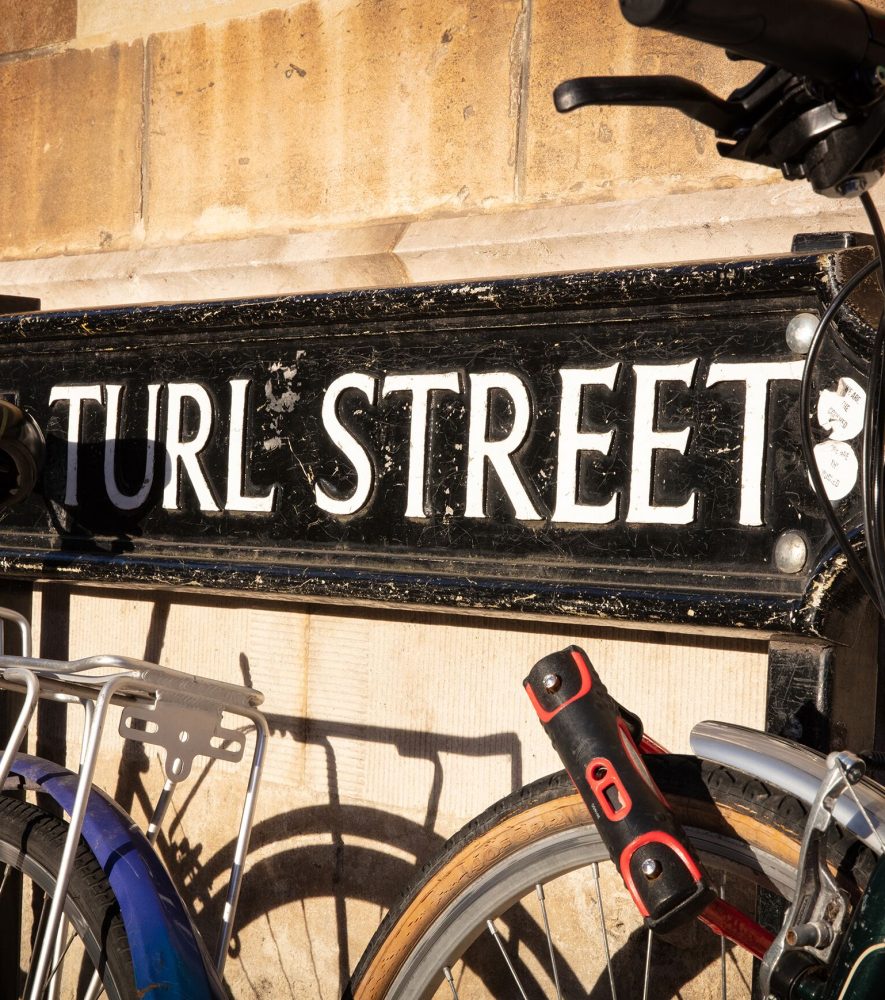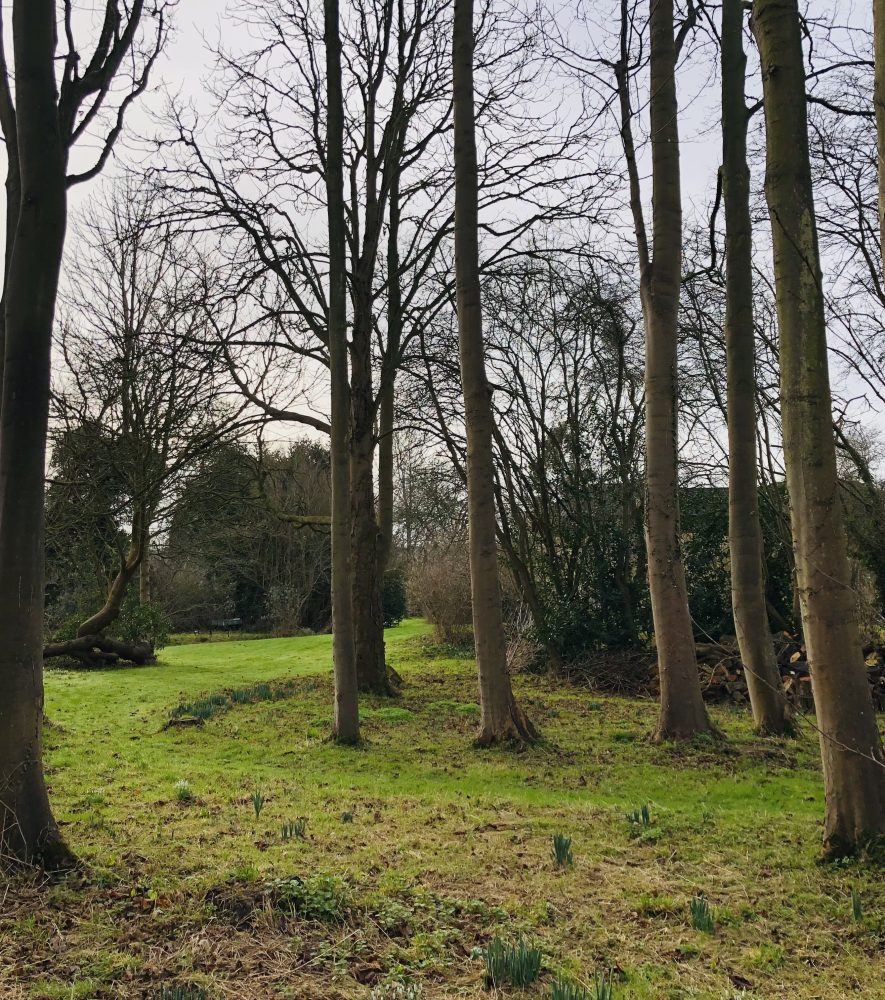We are committed to reducing our carbon footprint across our buildings, infrastructure and operational activities.
The College’s estate includes its historic city-centre site, incorporating the new Cheng Yu Tung Building, and student accommodation annexes in the east and north of Oxford. This diversity of architectural styles and ages creates an interesting set of challenges in terms of reducing our Greenhouse Gas (GHG) emissions, such as the integration of renewable energy solutions in to our older buildings.
However, guided by an independent feasibility study in 2019, we continue to introduce new measures towards decarbonisation across the College and its buildings, and our most recent initiatives are featured on this page.
Read more about the Cheng Yu Tung Building’s sustainability strategy here.

